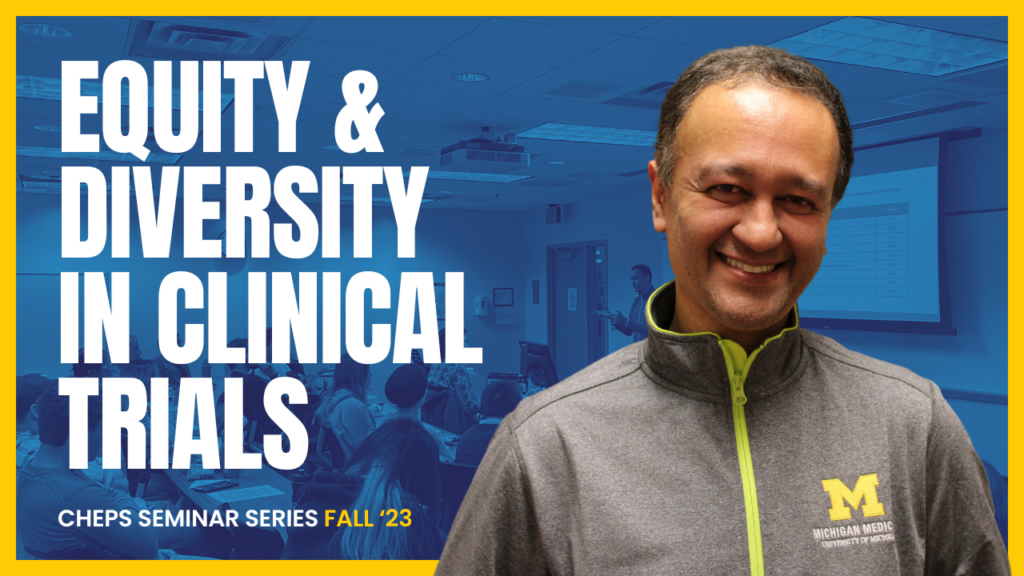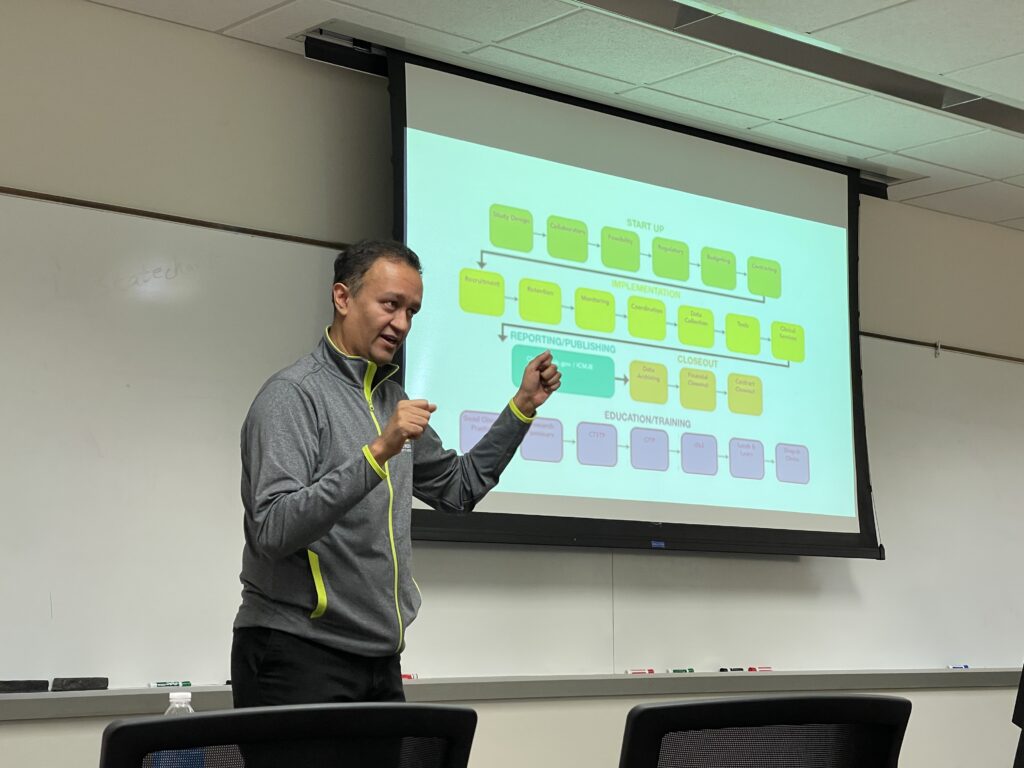
On Monday, October 23rd, Karthik Ramani, MD joined CHEPS in discussion at the Providing Better Healthcare through Systems Engineering seminar series. Alongside his work as the Medical Director of Interventional Nephrology and Vascular Access Services at Michigan Medicine, Ramani is pursuing his MBA at U-M’s Stephen M. Ross School of Business and holds particular interest in pursuing greater equity and diversity in clinical trials.
He began with some facts:
- While minority populations make up 39% of the U.S., they make up only 25% of clinical study participants.
- While 40% of White clinical trial candidates ultimately enroll in studies, that number drops to 23% for Black clinical trial candidates.
- Two thirds of the people with Alzheimer’s disease are women, and yet most Alzheimer’s research is done on men.
The history of clinical trials relying near-exclusively on White male participants is long, documented, persistent, and undeniably harmful. As described by Rmani, underrepresentation in research yields “barriers and gaps in our understanding of diseases and conditions . . . making the results less applicable to certain groups and [compounding] health disparities with serious consequences to the group and the nation.”
Just as there are a number of reasons why people choose to enroll a clinical trial (to gain early access to potential treatments, help improve the lives of others, better their own health, earn financial compensation, etc.), there are a number of reasons why people choose not to enroll, or to disenroll before a trial finishes. These reasons range from financial and physical access issues to a lack of medical trust. It’s imperative to not only acknowledge that these obstacles affect different populations in different ways, but to actively work to address them and the disparities they cause.
As voiced by session attendees, some out of the box ideas to do so included the following:
- What if we held all clinical trials in Indianapolis, as the city’s population breakdown closely mirrors that of the U.S.?
- What if we adopted a sliding scale for clinical trial compensation so that members of financially under-resourced communities could have an easier time participating?
- What if we implemented mentor programs to help people from various backgrounds feel more seen and comfortable in clinical spaces?
- What if we financially incentivized research groups to measurably reduce their biases?
With the aim of democratizing clinical trials, Ramani and his classmates at Ross turned to technology, creating an app called CORE (COnnecting REsearch).
“We felt that there wasn’t enough diversity and inclusion, which are critical to the evolution of clinical research,” shared Ramani.
As he describes it, CORE is “like Tinder but for clinical trials,” utilizing users’ provided health information to “match” them with relevant trials they are eligible for. Equipped with greater knowledge about what research is currently happening—hopefully before reaching a stage of critical health—users are then able to make the decisions that work best for them. CORE is in its first iteration, with version 2.0 currently in development.
Join us
Next week, we’ll discuss “Improving Access and Overcoming Barriers to Maternal Care Services” with Molly Jean Stout, MD, MS and Alex Peahl, MD, MSc. Join us then, October 30th at 4:30 PM. Spots available in person in IOE 1680 or online via Zoom.
To RSVP to one or more sessions (or to request access to a session recording), please email [email protected].
— Written by Hannah Buck, CHEPS Staff

